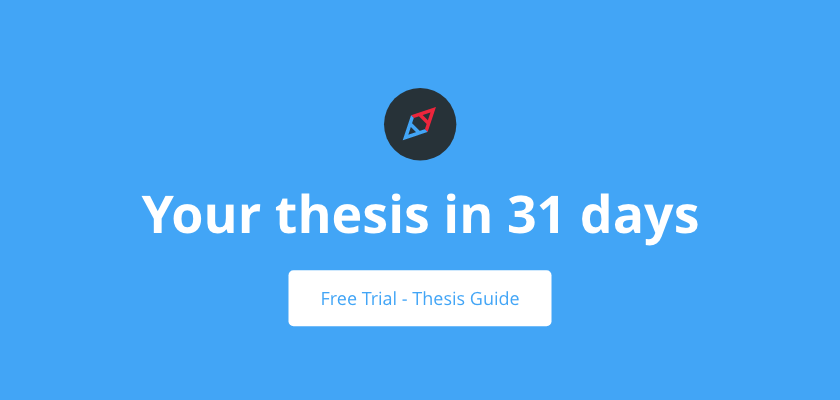An empirical thesis is an academic research in which certain information and data from reality (experience = empiricism) are independently collected to answer a certain question.
There are copious types of data collection, such as surveys, interviews, observations, text analyses, experiments, test series, simulations and modifications of these methods.
What are the advantages of an empirical thesis?
- Collect your own data
- Personal contribution is clearly defined
- Sometimes a higher grade is possible
- Clear guidelines for action
- Many methodological sources
- Chance to show your creativity
- You can learn more
- You can gain reputation and credibility
What are the disadvantages of empirical work?
- You are dependent on others
- Time needed to learn new methods
- More time may be required
- Somewhat uncertain ending
- Possibly a larger workload
- Possible costs for interviews and experts
What does a topic for an empirical thesis look like?
Like other types of work. The difference lies in the data sources and methods. Try our topic trip.
What does an outline in an empirical thesis look like? What chapters does it contain?
The topic trip provides you with a complete sample layout that even includes page numbers per chapter.
- Introduction
- Theory
- State of research
- Methodology
- Results
- Conclusion
What are the challenges of an empirical thesis and how do I overcome them?
1. You must locate a real research gap!
You have to ask a real question that has never been answered before in the way you plan to do so. To do this, you have to evaluate real scientific studies. Books are not proper sources, not even by a long shot. The studies are 95% in English, have their own unique terminology and require a lot of knowledge in the subject area because the analyses come from experts who have been researching such questions for a long time. So it’s best to first find the research gap because so much has already been researched. This is not easy even for experienced researchers.
The Thesis Guide takes you by the hand and leads you through this process step-by-step by providing an example topic. You absolutely MUST write a proposal. We can show you HOW and WHAT belongs in there!
2. You must work with new methods!
Most likely this is your first empirical analysis. The methods are new, you don’t have much time and you have to create a questionnaire or conduct an interview. But HOW???? You have to attract participants and collect data. But HOW????
The Thesis Guide provides you with an overview of the methods and detailed instructions for working with them. You also have concrete examples and templates of all kinds.
3. You must gain real NEW insight!
You cannot use old literature for writing your own findings. An empirical analysis is creative and you must add something new. Sometimes the NEW knowledge is apparently only clear at the end but not with us! The Thesis Guide will help you know from very early on with what the results and findings will be.
The Thesis Guide will help you see the end of the work right at the beginning, using proven patterns and examples for the beginning, guiding questions, detailed questions and formulation of objectives. This makes YOUR results clear, right from the start. It even makes work fun!
What is the best way to start an empirical thesis?
Start with the research question, topic and the appropriate sources! What answers are you looking for? Then follow this standardized procedure in the Aristolo Thesis Guide:
- Write a proposal,
- Specifically filter books and write theory chapters,
- Survey the state of research by means of study evaluation and write chapters,
- Consider and describe analytical methods (research methods),
- Obtain and evaluate information, data and arguments from sources,
- Gain new insight by means of analyses
- Draw conclusions, write the chapter on results and complete the thesis.
How can the Aristolo Thesis Guide help with your empirical thesis?
The Thesis Guide helps by providing detailed descriptions of the contents of every chapter with micro questions, sample formulations, all kinds of aids, file templates for all kinds of tasks such as interview guidelines, questionnaire templates etc.
Good luck writing your text!
Silvio and the Aristolo Team
PS: Check out the interactive Guide for writing a bachelor or master thesis in 31 days.


